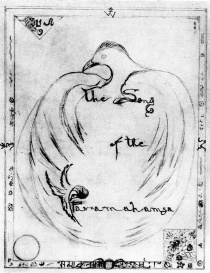Olcott Foundation
The Olcott Foundation was a committee based on the Olcott campus established to encourage creative expression among members of The Theosophical Society. Awards were given annually in several categories.[1]
Award winners and some other participants were honored in The American Theosophist, and the works were published or displayed at annual conventions. The program originated in the 1930s with the Olcott Lectureship, and was expanded in 1940 to include seven divisions: Public Lecture, Short Story, Poetry, Drama, Painting, Musical Composition, and Radio Script. In 1950 a division was added for Children’s Story. The awards continued until 1960, but the program was most active during the war years of the 1940s.
Committee and rules
Subcommittees developed rules for each category; brochures were issued for those interested; and response postcards were sent to people who submitted entries. Committee members included prominent American Theosophists such as:
|
E. Norman Pearson |
Fritz Kunz |
Helen Loenholdt |
Thea Hehr |
Award winners
Some people of the winners were Lillian Boxell, Nella Cole, Viva Emmons, E. Norman Pearson, Fritz Loenholdt, Joy Mills, and Roy Rush. When Ruth Collier wrote The Song of the Paramahansa, a long poem, it was published by the Theosophical Press.[2] The illustration is of the paramahansa, the "supreme swan" symbolizing the spiritual discrimination of an enlightened sage.
Additional resources
- Archival records. See Olcott Foundation Awards. Records Series 11.08. Theosophical Society in America Archives.
- The American Theosophist published over 60 articles about the Olcott Foundation from 1939-1960, per Union Index of Theosophical Periodicals.
